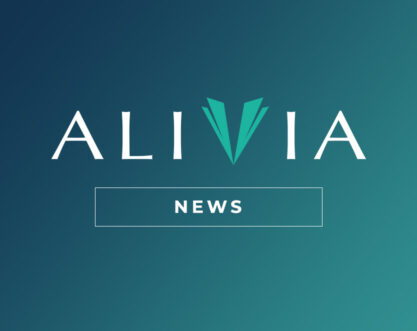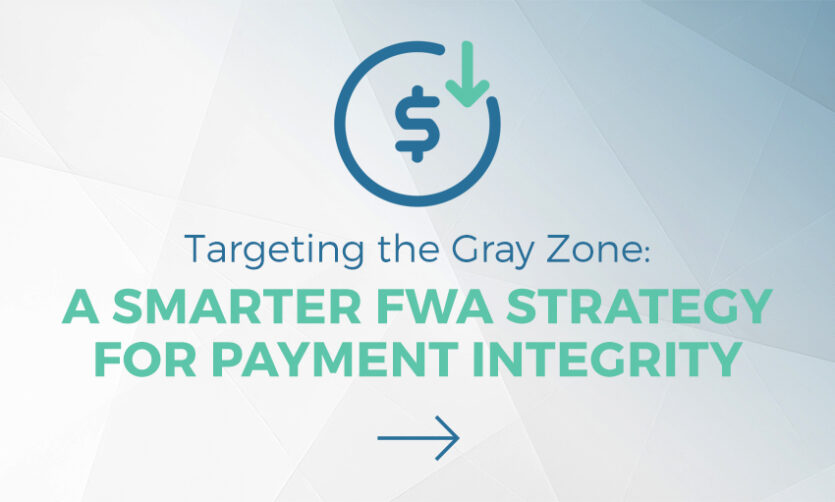Pre-Pay FWA Preventive Analytics
Why Alivia?
- AI-powered edits and scoring to flag risk before adjudication
- Configurable pend-and-review triggers to support compliance
- Behavioral modeling to uncover what rules-based systems miss
- Targeted case review and streamlined SIU investigations
- Scalable for plans of all sizes and payment models
Powered by Alivia 360™ Platform
Our platform supports proactive oversight at every stage of the claims process. It targets the “Gray Zone” between error, fraud, waste, and abuse—uncovering hidden recoveries that rules-based systems often miss. By unifying data, edits, audits, and workflows, it drives faster decisions and smarter outcomes.
ONE PLATFORM for FWA powers earlier action—stopping high-risk providers at the source and sharing insights across the claims lifecycle.
What specific types of healthcare fraud can Alivia's FWA Claims Manager™ detect and prevent?
Alivia’s advanced FWA detection solution, powered by FWA Claims Manager and leveraging sophisticated AI and machine learning algorithms (including both supervised and unsupervised learning), provides comprehensive capabilities to identify and preempt a wide array of evolving healthcare fraud schemes. Beyond traditional rule-based detection, our platform is designed to uncover subtle anomalies and complex patterns indicative of fraudulent activity, crucial for both Pre-Pay FWA Preventive Analytics and post-pay recovery.
FWA Claims Manager addresses potential fraud risks before adjudication with AI-powered edits and scoring to flag risk before payment. It offers configurable pend-and-review triggers to support compliance and utilizes behavioral modeling to uncover what rules-based systems miss. The solution supports targeted case review and streamlined SIU investigations, and is scalable for plans of all sizes and payment models. This includes, but is not limited to, the detection of:
Provider-Centric Schemes:
- Upcoding and Unbundling: Billing for a more expensive service than provided, or fragmenting a single procedure into multiple billable components to maximize reimbursement.
- Phantom Billing: Claims for services or equipment that were never rendered or delivered, including non-existent patient encounters or “dead patient” billing.
- Medically Unnecessary Services: Claims for tests, procedures, or treatments that are not clinically indicated or beneficial to the patient.
- Duplicate Claims: Submitting the same claim multiple times for the same service and patient.
- Provider Anomalies and Outlier Behavior: Identifying irregular billing frequencies, unusual service combinations, or significant deviations from peer group billing patterns, which often signal novel fraud schemes.
- Kickbacks and Collusion: Detecting suspicious referral patterns or relationships between providers, laboratories, or Durable Medical Equipment (DME) suppliers that suggest illegal financial inducements.
- Identity Theft and Patient Manipulation: Identifying instances where patient identities are used without their knowledge to generate fraudulent claims, or where patients are incentivized to participate in schemes (e.g., unnecessary genetic testing).
- Credentialing Fraud: Flagging discrepancies or inconsistencies in provider credentials, licenses, and affiliations.
Coding and Billing Complexities:
- Unlisted Code Abuse: Misuse of generic or unspecified CPT/HCPCS codes to obscure the true nature of the service provided or to bill for non-covered services.
- Modifier Abuse (e.g., Modifier 59): Inappropriate application of modifiers to bypass claims editing rules, leading to inflated or unwarranted payments.
- Imprecise or Vague Billing: Identifying claims with insufficient documentation or ambiguous descriptions that may hide fraudulent intent.
- Lack of Medical Necessity: Using AI to cross-reference diagnoses with billed procedures and medical records to identify services that lack clinical justification.
Emerging & Evolving Fraud Trends:
- Telehealth Fraud: Detecting schemes related to audio-only telehealth services, billing for non-existent virtual visits, or inappropriate use of telehealth for services requiring in-person care.
- COVID-19 Related Fraud: Identifying fraudulent claims linked to the pandemic, such as bogus testing, vaccinations, or treatments.
- Prescription Fraud: Uncovering suspicious patterns in controlled substance prescriptions, doctor shopping, or pharmacy irregularities.
- Adaptive Fraudsters: Our continuously learning AI models adapt to new data and behaviors, enabling the detection of sophisticated, previously unknown fraud patterns that evade static rules-based systems. This includes the ability to identify “medical record cloning” or fabricated claims by analyzing unstructured data like clinical notes using Natural Language Processing (NLP).





